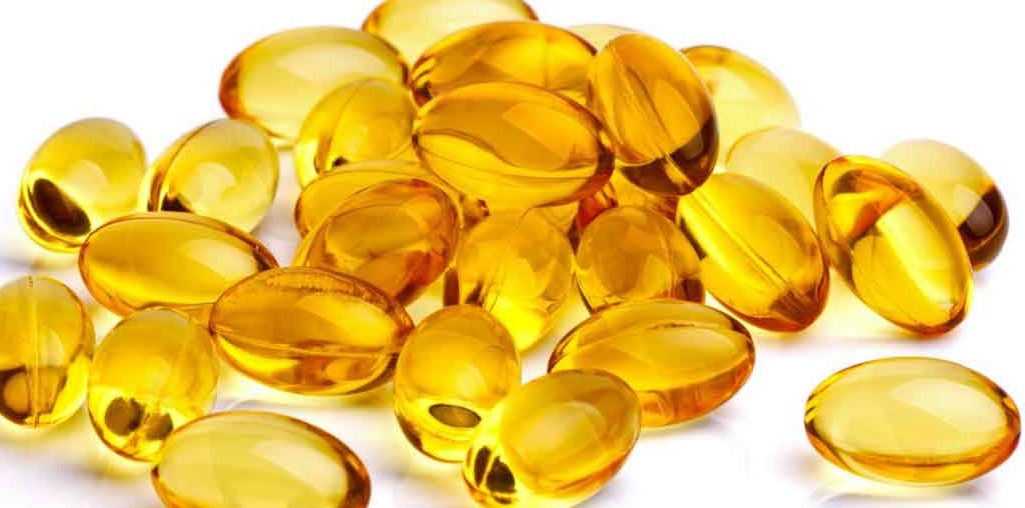The Health Benefits of Fish Oil

Omega-3s in fish oil supplements can improve your health. Eating fish may be even better. Here's what you should know about the health benefits of fish oil.
In the 1970s, Danish physicians noticed that Inuits living on the west coast of Greenland were much less likely to die from heart disease than other Greenlanders.
The Inuits ate plenty of fish. The discovery led to decades of research on how eating fish — or taking fish oil supplements — affects heart health. Although you may have seen conflicting news stories over the years, the evidence is positive.
YOU MIGHT ALSO LIKE: Healthy Fats and How to Eat More of Them
Studies of big populations provide one kind of case. Drawing on data from nearly half a million middle-aged volunteers in England, Scotland, and Wales, researchers identified more than 133,000 people who said they regularly took fish oil supplements and didn’t have cancer or heart disease when the study began.
Following up between eight and 12 years later, researchers reported that people who took fish oil were more likely to be alive and less likely to have had a cardiovascular event. (As with all studies of this kind, the researchers used strategies to focus on fish oil and remove the effect of many other factors). The benefit was a little stronger in volunteers who had high blood pressure.
Randomized controlled clinical trials test a supplement against a placebo. A meta-analysis of 13 such studies concluded that fish oil supplements can lower your risk of a heart attack and death from heart disease.
Other research evaluated 40 clinical trials representing more than 135,000 participants. That study also concluded that strong evidence supported fish oil supplements as heart protection, linking them to fewer heart attacks and other heart-related problems.
Yet other research didn’t show heart benefits from taking fish oil supplements, and there is no evidence they can prevent strokes.
Taking a middle road, the American Heart Association (AHA) recommends eating two servings a week of fish, especially fatty fish like salmon and sardines, which contain heart-healthy omega-3 fatty acids.
The AHA also suggests that fish oil supplements can improve your cholesterol, lower your blood pressure, and reduce your risk of dying of heart failure. The supplements may be most useful if you are overweight.
Talk to your doctor before combining a cholesterol-lowering statin drug with a fish oil supplement.
Health benefits of fish oil for depression
Another line of research explores whether fish oil supplements can improve brain function, particularly for people with depression. The evidence seems to show benefits, but it’s not rock-solid.
One reason for the inconsistency may be that fish and fish oil products contain high amounts of two fatty acids, the omega-3s EPA and DHA, which may have different effects. Some researchers argue that clear benefits come from DHA.
When you buy supplements, you’ll see different ratios between the two. The fatty acids may affect women and men differently as well.
Another problem is that commercial supplements aren’t reliable. One study evaluated doses of EPA and DHA in more than 250 products made by the nation’s largest retailer. It concluded that nearly all of them contained far too little to be effective. You could ask your doctor for a prescription fish oil supplement, the best way to ensure a standard dose.
What you can do
It’s important to know that, although your body needs omega-3s to form membranes around brain cells and is essential for the development of eyes and reproductive cells, it can’t make them ourselves. You need to get the fatty acids from food, mostly fatty fish, but most Americans don’t get enough from their diets.
If you eat fish more often, you’re also less likely to eat macaroni and cheese or a hamburger and fries.
If you’re concerned about mercury levels in fish, stick to fish with lower levels, including salmon, sardines, mackerel, and herring. Swordfish and blue fish tend to contain the most mercury.
But you are far more likely to suffer from lack of omega-3s than from mercury poisoning.
What to do if you don’t eat fish
If you’re vegetarian, you can get omega-3s from other sources. Another type of omega-3 fat, alpha-linolenic acid (or ALA), occurs in nuts, seeds, and oils. Although it may help reduce inflammation, this type of fat is less likely to benefit your heart.
If you choose to buy a supplement, check ratings at the independent testing company Labdoor, which gives two brands of krill oil high marks. Krill are tiny shrimplike creatures that whales, seals, and penguins and other birds eat. The oil from them is high in omega-3s.
Early research suggests that krill oil may be even more helpful than fish oil, but it’s far pricier. When it comes to fish oil, products based on anchovies are increasingly considered most desirable.
YOU MIGHT ALSO LIKE: Fish Oil Supplements Can Boost Male Fertility
Updated:
September 19, 2023
Reviewed By:
Janet O’Dell, RN